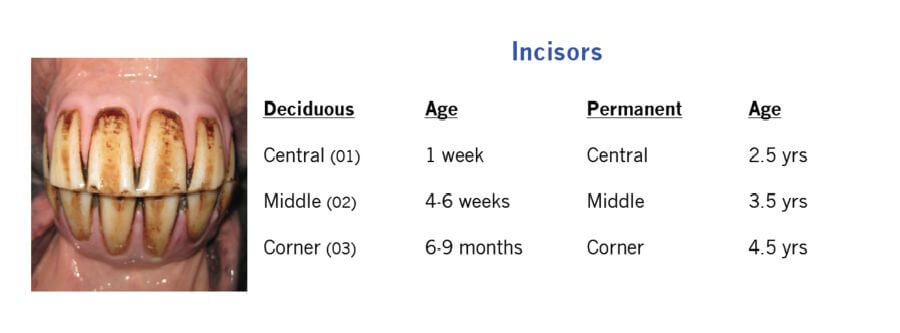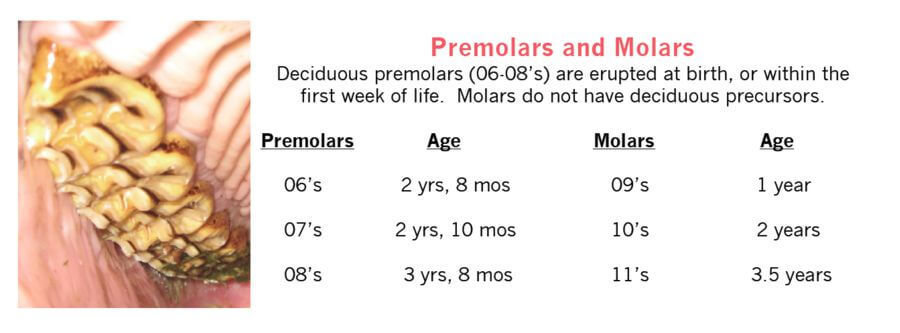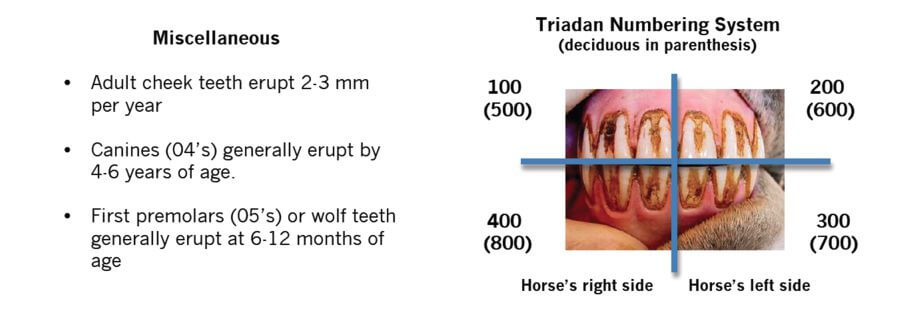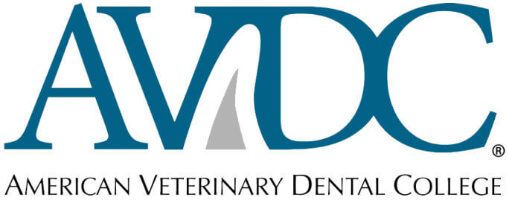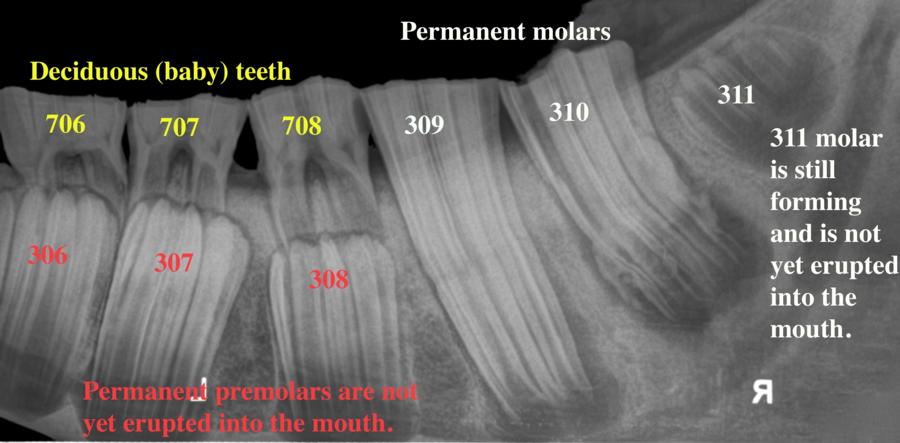
At what age should dental care begin?
Dental examination should begin at your foal’s first wellness exam. The anatomy of the mouth should be examined, looking for palatal abnormalities or conformational abnormalities such as overbite, underbite, or wry nose.
If everything appears normal at this first visit, then your foal may not require another dental examination until he is a yearling. If there are any anatomical or conformational abnormalities, then your foal may need to be examined more frequently.
Identifying these abnormalities at a young age is important so that appropriate care can be recommended. In some cases, early intervention can minimize the impact that some of these bite defects (overbite, underbite, wry nose) can have on your horse’s quality of life and oral function later in life.
When should my horse have his first dental float?
This depends on the horse. All horses should be examined as yearlings. At this time, a brief oral examination can be performed to assess the anatomy and conformation of the mouth. Some yearlings may be recommended for a dental float if they have conformational abnormalities, or if they have excessive points that are causing abrasions in the mouth.
Most horses should have their first dental float between 2 and 2 1/2 years of age. Young horses start shedding their first deciduous (baby) teeth at 2 1/2 years of age, so this is an important time to have a good oral exam performed under sedation. Please refer to the chart below for the dental eruption times in young horses.
Wolf teeth, if present, may be extracted at the 2.5-3 year check. We generally recommend extracting wolf teeth after the first deciduous (baby) cheek teeth are shed, to prevent damaging the developing adult tooth.
Dental eruption times
We recommend twice yearly examinations for most horses between the ages of 2 and 4, since this is a time when they are shedding deciduous teeth and erupting new permanent teeth. There are many abnormalities that can occur during this process which can sometimes lead to dental imbalances or more serious problems such as periodontal disease later in life.
Good dental care during this time period can help prevent many problems, and help set them up for good oral health as they enter adulthood.
Request an equine appointment
If you would like to make an appointment with Midwest Veterinary Dental Services, please visit the request page and fill out the form so we may have your information for scheduling purposes. We usually book out 4-6 weeks for appointments.
Routine Dentistry
Restoration & Endodontics
Oral Surgery
Periodontics
Young Horse Dentistry

